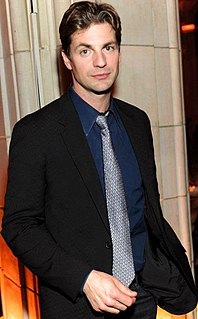A Quote by Shefali Shah
Most actors work on a scene, I try to find out who the character is. So when a scene or a moment comes, I react the way she would react.
Related Quotes
You are preparing yourself for a scene, and the most important thing is to remain emotionally available and remain in the moment with your scene partner. You don't want to let your own self-consciousness block the flow of creativity that's coming out so that you can act and react, and play what the scene is all about.
I love Kimberly Peirce. Incredibly intense is a good way of describing her. Brutally honest. Really sharp. She's a director for actors. That's what she's best at, sitting down with an actor and just getting to the heart of what a scene is. And getting to the heart of not just what the scene is and the character is, but what you are, and how to build that bridge between the "me" and the character, and those emotions.
I like actors who just become that person and then react, and Adam [Driver] is completely reactive in that way. So every day working with him was really a pleasure. And he's in almost every scene in the film, so the poor guy had to work the - almost the entire 30 days of our film shoot. But, yeah, he was really a pleasure, and I really love what he - how he embodied this character.
Imagine that someone said or did something cruel to you, but that you did not react in any way whatsoever – you did not become upset, resentful or even ruffled. You simply observed that this person was saying or doing something cruel, as though you were calmly observing the scene in a movie. You simply would not be stressed by what would appear to others to be a highly stressful encounter. Stress and cruelty affect us as profoundly as they do only because we react to them resentfully.

































